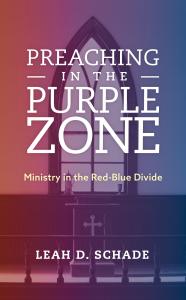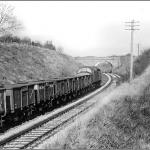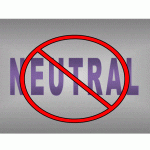Why would Jesus say he wants to bring fire and divisions in Luke 12:49-56? Isn’t this the last thing we need right now? Or maybe this is exactly what we need – if we’re willing to reconsider the function of the church and its prophetic role in society.
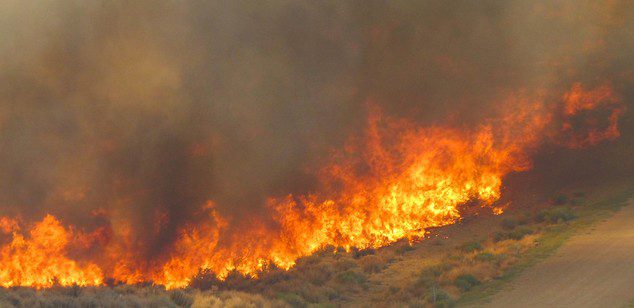
I’ve been working with a group of students in a preaching course for the Lutheran TEEM program – Theological Education for Emerging Ministries. We’ve been thinking about ways to apply the “dialogical lens” to the lectionary texts during these Sundays in August. [I explain what the dialogical lens is and how to use it in my book Preaching in the Purple Zone: Ministry in the Red-Blue Divide (Rowman & Littlefield, 2019), and you can also read about the 6 Steps for Using a Dialogical Lens here.]
One of the students, Dale Zylstra, will be preaching his sermon on Luke 12:49-56 at St. Paul’s Lutheran Church in Michigan City, Indiana. Let’s see how Dale will incorporate the dialogical lens into his sermon to invite conversation about the role of the church in a divided society. As a quick review, here are the 6 steps:
Six Steps for Using the Dialogical Lens
Point out the dialogical aspects of the passage.
Determine what’s at stake.
Identify the values.
Explain how God, Jesus, and/or the Holy Spirit is active.
Recognize what the dialogue is teaching us.
Suggest possible next steps.
In Luke 12:49-56 Jesus states that he has not come to “bring peace,” and actually talks about being divisive. This will be uncomfortable for some to hear because we like to think of Jesus as being “nice.” His words, however, are not meant to be nice. They are intended to convey a sense of urgency and to stir things up.
The question is, are Jesus’s words meant to be prescriptive or descriptive? In other words, is Jesus expecting those who follow him to divide family members against each other? Or is he merely describing what happens when the work of God meets the sin of the world? We might think of it like the fire that results from the chemical reaction between sodium chlorate, sugar, and sulfuric acid. The fire that ignites from God’s justice is initiated by the church daring to confront injustice in the world.
What are the implications for the church in Jesus’s words?
What are the implications for how the church decides whether or not to engage on issues that are controversial but affect the community in profound ways? Is it ever okay to be “divided”? Are there times when the church needs to take a stand that will be seen as divisive? Is fire sometimes necessary to burn away the impurities of injustice?
Dale will begin his sermon by pointing out the ways in which all of the lectionary readings present a picture of the world as a broken and hostile place. The reading from Jeremiah 23:23-29 bemoans the way false prophets mislead people and cater to their own self-interests. God’s words in verse 29 echo in the Gospel reading: “Is not my word like fire, says the Lord, and like a hammer that breaks a rock in pieces?”
Psalm 82 laments the delay of justice while the weak, the orphan, the needy and the lowly suffer at the hands of the wicked. The author of the letter to Hebrews paints a bleak picture in 11:29-12:2 where the faithful are tortured, mocked, flogged, stoned, killed with the sword, and even sawn in two. The suffering and inhumanity are almost incomprehensible.
So why is Jesus apparently throwing fuel on the fire?
“I came to bring fire to the earth, and how I wish it were already kindled! I have a baptism with which to be baptized, and what stress I am under until it is completed! Do you think that I have come to bring peace to the earth? No, I tell you, but rather division! From now on, five in one household will be divided, three against two and two against three; they will be divided.” (Luke 12:49-53)
Dale observes, “In all our readings, we find the description of a dysfunctional world. I think we can agree that our world today also suffers from severe dysfunction. We’re still divided and broken. A simple survey of the nightly news shows that. Crime continues, there is still murder and mayhem in our streets and homes.”
To contextualize his sermon, Dale will describe the conditions of brokenness in Michigan City, Indiana. This is a town that has experienced severe financial devastation that continues to afflict the community. While he will lift up the good ministry that the church has supported in the community, such as assisting with those who are hungry and those without homes, he will also ask an important question.
What is the role of the church in confronting the system itself about why there is a need for community meals and homeless shelters in the first place?
Having THOSE conversations will likely cause a “chemical reaction” and bring divisions. This is because such conversations require addressing things like public policy, laws, income inequality, and the severe gap between the very wealthy and the very poor.
But, as Dale will point out, these will be divisions and this will be a holy fire born out of God’s love. Doing the work of God entails being honest about the way things. It’s about bringing light and heat from that holy fire. It means sharing stories about how the brokenness of our economy, institutions, and government is affecting the lives of people.
The question for the church is – are we willing to have these conversations and listen to people’s stories?
Are we then willing to find ways to alleviate suffering – not just at the point where people are in crisis, but “upstream” where the conditions that create the crisis begin?
Dale will invite his congregation to engage in these kinds of questions. “Perhaps it’s time to have another conversation about these problems we see around us. Maybe we can have an honest discussion about the brokenness we have experienced and seen in the community around us. Perhaps through open and honest dialogue, we can be led by the Holy Spirit to a new vision for the life and work of this congregation.”
Dale asks his listeners: “As we live and work and worship here in Michigan City, how is God working through us in this broken world?”
You may consider asking this question about your own church and community.
By opening up a space and a time to engage in dialogue, we can hear each other’s stories. We can discern where God is calling the church. And we may find new ways to minister and bring healing to this broken world.
How do you see divisiveness manifesting in your own community? What is causing these divisions? What is the church’s role in the midst of a divided society? Can we see ourselves as part of the “great cloud of witnesses” (Hebrews 12:1) as we engage these conversations with each other and our communities?
Through this dialogue, we may come to realize that it is time to bring the light and heat from Jesus’ holy fire.
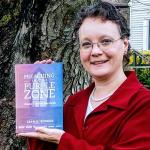
Leah D. Schade is the Assistant Professor of Preaching and Worship at Lexington Theological Seminary in Kentucky. She is the author of Preaching in the Purple Zone: Ministry in the Red-Blue Divide (Rowman & Littlefield, 2019) and Creation-Crisis Preaching: Ecology, Theology, and the Pulpit (Chalice Press, 2015).
Twitter: @LeahSchade
Facebook: https://www.facebook.com/LeahDSchade/
Read also:
Owning Stuff or Stuff Owning Us? The Rich Fool in Luke Chapter 12


